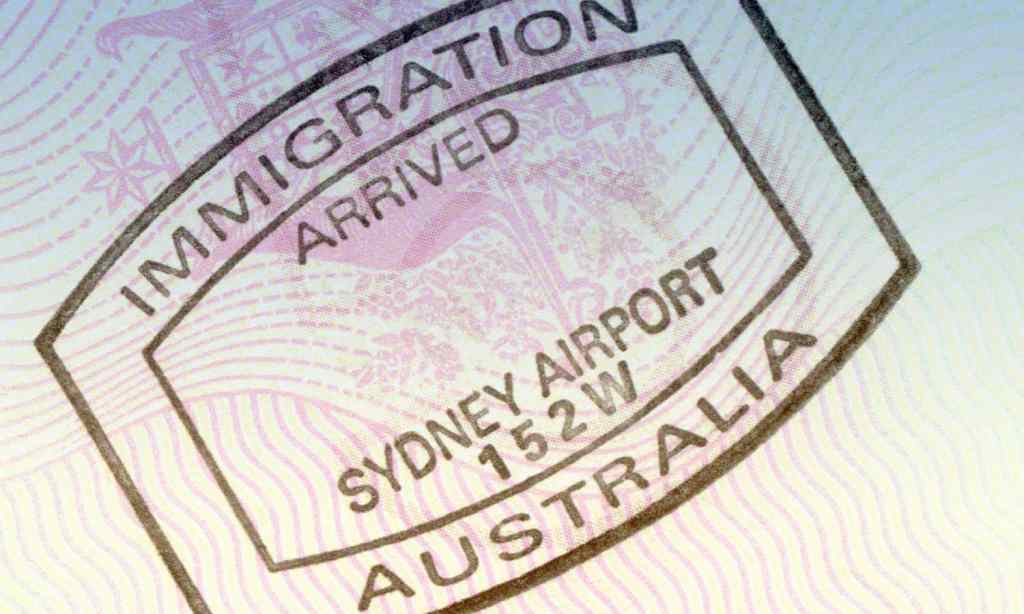With all the talk of vaccine passports and the possibility of Australia opening its international borders sooner than expected, we’ve finally got some insight into how exactly the new system will work.
The Department of Home Affairs has announced that Australians and those coming into the country will now have to rely on a ‘digital passenger declaration’ for international travel.
The DPD, as it is known, will replace physical Incoming Passenger Cards and the digital COVID-19 Australian Travel Declaration and will incorporate the personal information of travellers that could be used for contact tracing and other government services.
While the incoming technology isn’t specifically targeted at vaccine information, it’s thought to be able to incorporate that too in a bid to digitise the movement of people in and out of the country.
The technology has been built by international IT firm Accenture and is estimated to have cost $75 million. Here’s what you need to know.
Is This a Vaccine Passport?
Yes and no. The DPD will be used to register the vaccination status of passengers and facilitate the travel of those who are vaccinated as restrictions ease up in the coming months but it will go further than a simple vaccination certificate.
Australia has a fairly convoluted system involving multiple layers of government when it comes to identification, travel, and health information, so this new pass is designed to smooth the transition here between state, federal, and overseas territories.
The pass will collect travel information on people crossing international and domestic borders, share that with states and territories for contact tracing purposes, and could eventually incorporate visas, import and export permits, and licenses. It could even be used to register other government services such as environmental and building permits.
All of this is being done in an effort to strategically remove the ban on Australians leaving the country that has been in place since March of 2020.
How Will the DPD Work?
People wanting to enter Australia will have to complete a digital passenger declaration up to three days before they fly to prove that they have been vaccinated. This can be done on a computer, tablet or mobile.
The system will link vaccination certificates to travel information which will then be passed on to states and territories so they can keep track of who has been vaccinated and where they are.
The Department of Home Affairs has worked with Services Australia on the pass to allow for the transfer of vaccine certificates and health information between departments.
The DPD will basically allow vaccinated people to prove that they’ve had the jab, opening the door to international tourism.
The pass is designed to be integrated with home quarantine apps that are going to be essential to allow frictionless international travel.
Prime Minister Scott Morrison has already highlighted the need to remove hotel quarantine as a barrier for international travel and we could soon see incoming travellers only having to spend a few days at home or in isolation upon their arrival.
South Australia has already trialling a home quarantine system using the Home Quarantine SA app that allows people to see their testing schedule, update daily symptoms and confirm their location with regular GPS check-ins.
Should We Be Concerned?
People are always weary of new technology — with good reason — particularly when it pertains to personal information. The fact that this technology has been developed by a private firm has raised security concerns and there are criticisms of the way that the government has handled the build.
Michael Tull, assistant national secretary of the Commonwealth Public Sector Union, has said that DPD would be a “critical digital infrastructure.”
Because it handles sensitive information, the technology should have been built “in-house by the public service, so it is publicly owned and controlled by Parliament,” Tull said.
“Public assets like visa gateways should never be handed over to a multinational corporation, and certainly never in a circumstance where major questions about what is being built, how much it will cost are yet to be answered.”
“This is a troubling move in the wrong direction, the government must invest in in-house capacity not outsource essential public work to multinationals who wish to have a future monopoly on government services.”
When Will We Start Using the New Tech?
The digital passenger declaration is now moving into the testing phase before it will be deployed throughout major Australian airports.
It will apply to everyone coming into the country, which could be as early as November.
Morrison told Australians on Sunday that they should “dust off the passports” and it’s likely that we will be using this new form on our next overseas trip.
Read more stories from The Latch and subscribe to our email newsletter.







